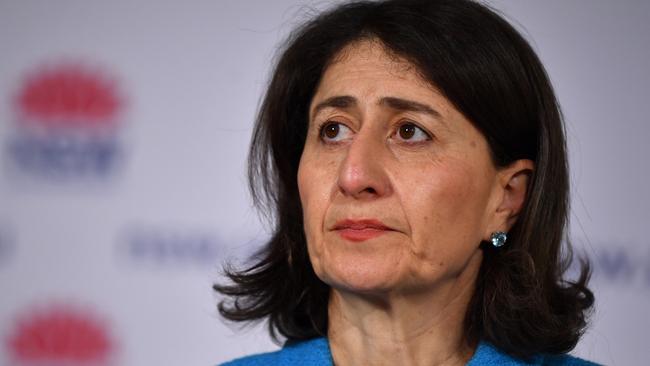
Whether you voted for her or not, Berejiklian had built a reputation for humility, hard work and delivery – the antithesis of the flashy politician chasing the photo opportunity, more the sort of conviction leader that increasingly is rare in politics. Whatever faults Berejiklian may have had, her departure has upset women in particular (never an easy constituency for the centre right) and has stoked dissatisfaction with the political class more generally.
As often is the way, we seem to appreciate what we’ve lost only once it’s gone, or grasp the essence of leadership when it’s absent or when it’s needed in times of crisis, like now. Is that what sits at the heart of our current unease, less about Covid and more about our country’s inadequacies in coming to grips with a mere virus, knowing there are serious challenges to face, including possible armed conflict in our region?
Even lockdown-induced disquiet aside, there’s still a strong case to be made that our public life is at a low ebb and that today’s politicians rarely measure up to their predecessors.
John Howard and Bob Hawke, for instance, both intensely controversial and divisive figures in their heyday, are now all but unanimously regarded as giants, compared with today’s leaders, who too often are found wanting.
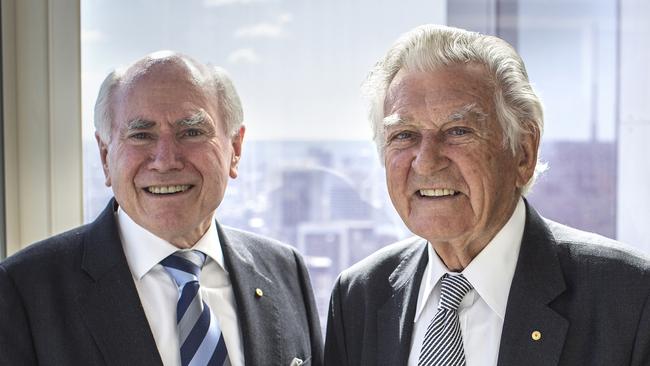
What’s missing from politics today that was much more present in the 1980s and ’90s? I don’t say that today’s leaders have no convictions. Scott Morrison is a deeply sincere Christian and an admirably committed family man, but there’s a difference between having personal convictions and being a conviction politician.
Whether it’s on nuclear power or ending lockdowns, the Prime Minister always seems to want a consensus first, forgetting that politics is not called the battle of ideas for nothing. If bipartisanship becomes a requirement for action, then what you get is a government that just minds the shop.
By contrast, the decisions that make history and change countries are brave decisions and rarely come easy or with consensus.
The GST is a ready example. So, too, stopping the boats; there was no consensus then, just a prime ministerial conviction that it needed to be done and a subsequent consensus that only success created.
Look at what our two best recent prime ministers did. Hawke deregulated financial markets, cut tariffs and started privatisation; Howard reformed workplace relations, introduced work for the-dole and brought in the GST.
Both Hawke and Howard ruthlessly pruned government expenditure because they understood every dollar government spent was taken from the public as tax today or tax tomorrow.
Whether it was Hawke fighting with the Labor Left to insist the workers couldn’t do well unless their bosses made a profit, or Howard fighting with Labor (and the Liberal Left) over the GST and welfare reform (because Labor by then had abandoned its free-market dalliance), both were leaders prepared to fight a good cause.
Sure, none of their successors have had the time in office they had, but how many of them had as much ambition for our country?
There have been many factors in the decline of our polity: the 24/7 media that inevitably stresses the urgent over the important; the rise of social media that gives a loudhailer to the most bigoted and ignorant; and the impoverishment of traditional journalism that could put issues into context and was resourced to spend the time needed to interrogate policy detail.
But the biggest change has been the rise of an apparatchik class of lifelong political operators driven more by short-term political success than any commitment to a cause.
Instead of people who would have succeeded at anything professionally but who entered public life from a sense of calling, we have people who’ve succeeded only at politics. They leave university, become political staff members or work through the union movement, join a faction (yes, the Liberals have them too), do the numbers to get preselected, avoid rocking the boat to get promoted and hope to leave politics still young enough to prosper from their connections.
Hawke was a one-time strike-happy union firebrand who then worked out that workers couldn’t have a well-paid job without a boss to provide it. Howard was a suburban solicitor whose commitment to small business, the family and traditional institutions ran like a golden thread through his public life.
For Paul Keating and Peter Costello, too, it was the cause that mattered. That was why both were prepared to serve under leaders they thought had passed their use-by date.
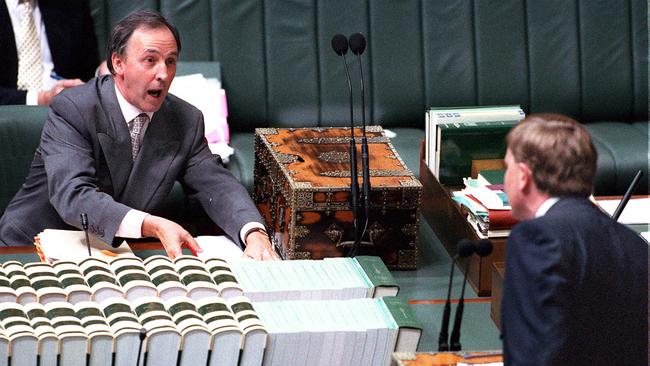
By contrast, was there any real philosophical ballast underpinning Kevin Rudd and Julia Gillard, other than the desperate desire of one to prevail over the other?
Brendan Nelson was a conviction politician but was never given a chance to succeed, cut down by Malcolm Turnbull, who saw political office as his birthright and apparently wanted to join Labor until he worked out that the Libs offered an easier path to the prime ministership.
Is that the best we have?
I recall when Tony Abbott abolished taxpayer-funded first-class overseas travel for MPs, the junkets with spouses at five-star hotels, and insisted that MPs could not employ their spouses and children in their electorate offices to boost their family income. The partyroom resentment was palpable because, for many, it was about them, not the cause. Both the MPs who moved the February 2015 “empty chair” spill had been affected by these changes.
Likewise, Abbott’s banning of lobbyists from the Liberal Party’s state and federal executives – on the grounds that you could be a lobbyist or a powerbroker but not both because you shouldn’t be making money from connections – was part of his demise as prime minister.
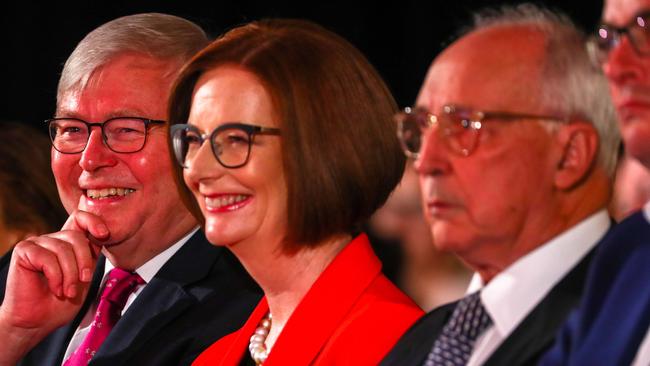
The way new NSW Premier Dominic Perrottet has been targeted over his Catholic faith and large family in recent days highlights the activist media’s determination to make what was once an asset in a politician a millstone.
We barely see mention of the Catholic backgrounds of Labor senator Kristina Keneally or Victorian Labor Premier Daniel Andrews, but in a conservative such as Perrottet (and Abbott) it’s shaped as a pejorative early. Perhaps the calculated attacks on Perrottet are our best indication yet he has what it takes to succeed. For Andrews, anyone who believes there must be integrity in public life just hopes the truth eventually catches up with him.
Throughout this pandemic, both sides of politics, from a position of professional fulfilment and material comfort, have tended to lecture people with insecure jobs and difficult family circumstances about what’s good for them. It has highlighted the disconnect between leaders and the led, and their different value systems, that presents such a challenge to the health of our democracy.
Peta Credlin is host of Credlin on Sky News, 6pm weeknights.



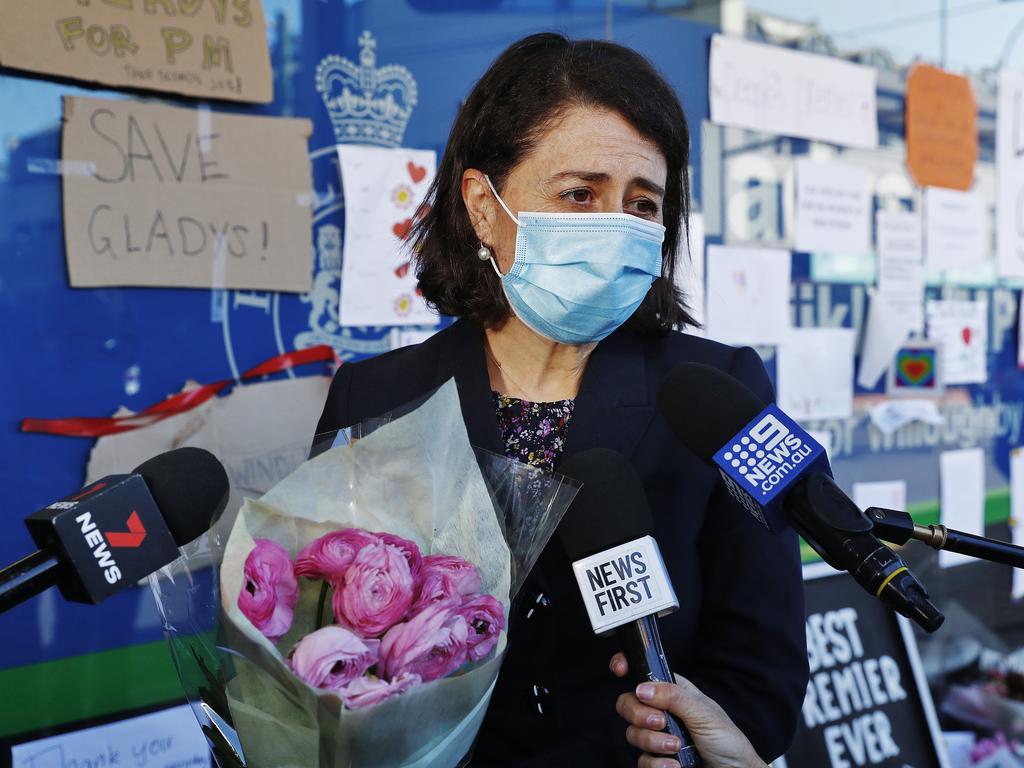
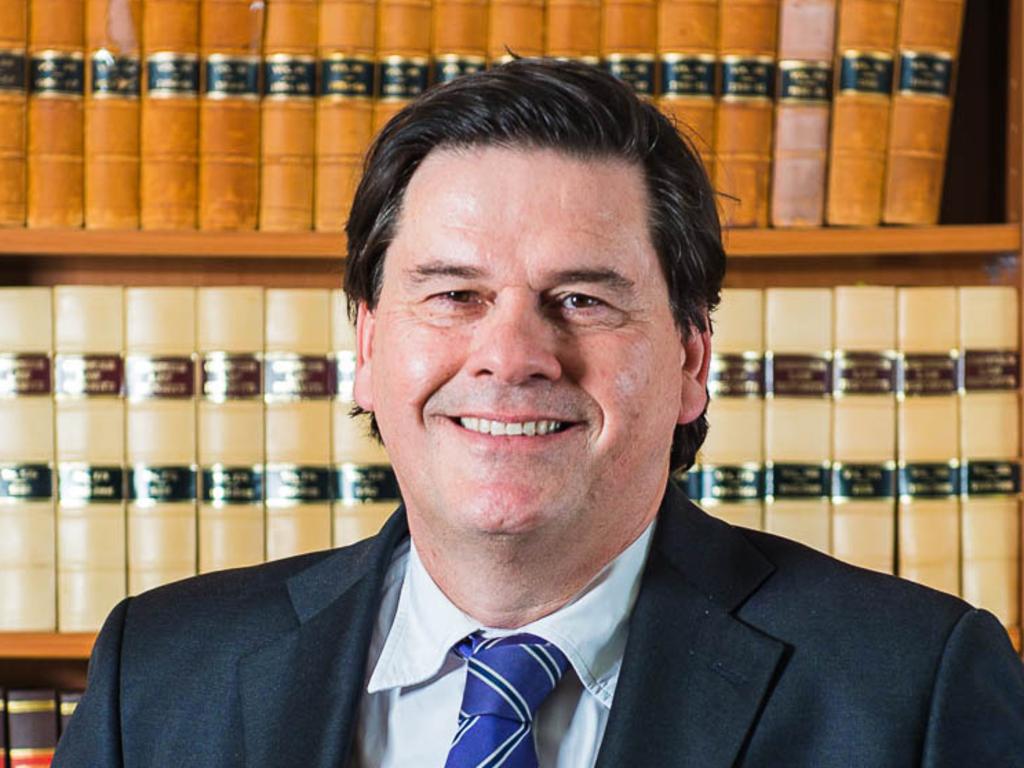



What surprised me most following the abrupt departure of NSW premier Gladys Berejiklian wasn’t that she quit but that party insiders underestimated the degree of genuine grief in the community over her resignation.